|
|
 Hallowed be Thy Name…
Hallowed be Thy Name… I just saw a blog by Vineet Chander called ‘OmSweetOm’. It was all about a new Halloween costume based on the Hare Krishna look: http://blog.beliefnet.com/omsweetom/2009/11/a-hare-krishna-halloween.html#preview
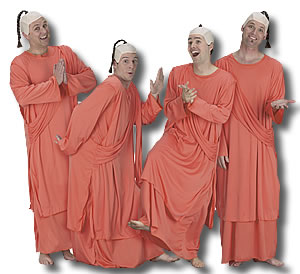
Hallowing the Holy Name
Inevitably there are calls to protest this ‘insult’ to Krishna consciousness and Hinduism. Vineet gives a reasonable perspective on why he thinks we should not, but he misses the real point.
According to the Caitanya Caritamrta if a person somehow chants the holy names, even in joking, they get transcendental benefit:
Adi 17.200
sei haite jihva mora bale ‘hari’ ‘hari’
iccha nahi, tabu bale, — ki upaya kari
TRANSLATION
“‘Since that time, my tongue also always vibrates the sound “Hari, Hari.” I have no desire to say it, but still my tongue says it. I do not know what to do.’
PURPORT
Sometimes demoniac nonbelievers, not understanding the potency of the holy name, make fun of the Vaisnavas when the Vaisnavas chant the Hare Krsna maha-mantra. This joking is also beneficial for such persons. Srimad-Bhagavatam, Sixth Canto, Second Chapter, verse 14, indicates that the chanting of the Hare Krsna maha-mantra, even in joking, in the course of ordinary discussion, in indicating something extraneous, or in negligence, is called namabhasa, which is chanting that is almost on the transcendental stage. This namabhasa stage is better than namaparadha. Namabhasa awakens the supreme remembrance of Lord Visnu. When one remembers Lord Visnu, he becomes free from material enjoyment. Thus he gradually comes forward toward the transcendental service of the Lord and becomes eligible to chant the holy name of the Lord in the transcendental position.”
Vineet’s article got it right, although he didn’t fully explain why the ‘halloween Haris” is Ok. Srila Prabhupada gives the explanation above. To chant Hare Krishna is better than to not chant Hare Krishna, even if it is done in jest, which the Halloweeners most certainly do. They are chanting Hare Krishna throughout the Halloween festival which they may never have done otherwise.
Think about it–they spend at least a few hours imitating a Hare Krishna devotee. Now think about another great imitator and the result she got…
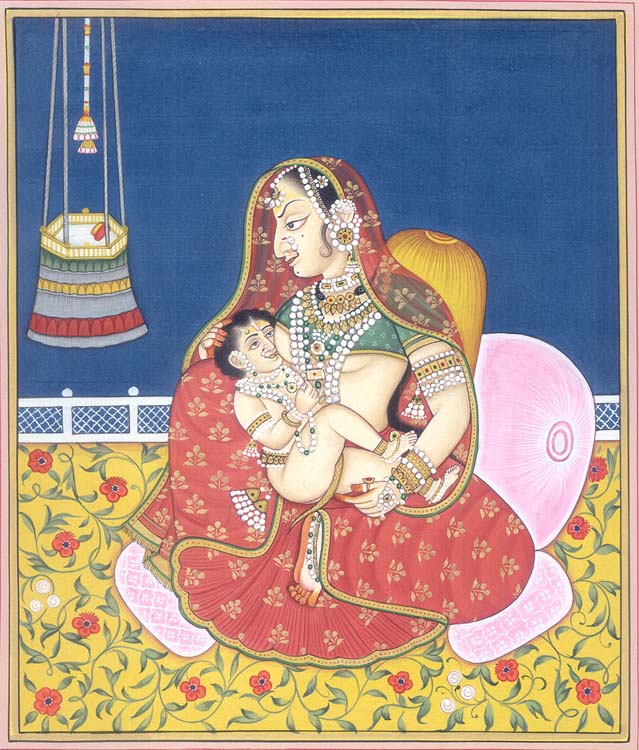
Srila Prabhupada was always pleased to see Krishna’s names chanted, even in apparently adverse circumstances. It reminds me of when I was with him in Calcutta on February 5th 1977. An article had come out in a Boston newspaper asking whether the Hare Krishna devotees were good or bad:
[Note: excerpted directly from my original diary. This has not yet edited or been published]
 Q&As: #4
Q&As: #4 With the onset of my addled old age I am losing my ability to count. I posted Questions from the CIS #5 before I posted #4. My apologies. Here’s the missing question and answer:
Question 4.
Tell me, please, did Prabhupada mention that it is possible to chant the rounds instead of someone? Or in the time of chanting to pray for someone? Is it authoritative to give the results of oblations, for example ekadashi fast, to someone? Thank you! Hare Krishna!
Answer:
I think you mean, “Is it possible to chant rounds on behalf of someone else?”
Chanting rounds is something we do for our own advancement, so its difficult to think that someone could chant rounds on behalf of someone else. However, if when we chant our rounds, we pray for the benefit and purification of someone else, certainly that person will get great benefit.
The results of oblations can certainly be given to others. The great example is Dadhici,
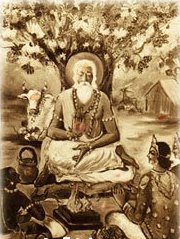
who gave his bones to the demigods for their benefit. That means he voluntarily sacrificed his own material body for their benefit. Similarly, a devotee can fast and offer the results of their austerity to the credit of someone else, and that person will definitely get the benefits.
Krsna is very merciful and He especially likes to please His devotees. If a devotee prays for the welfare of another living being, Krsna is eager to fulfill His devotee’s request. He does so out of love. So even if a person is not deserving, if a real devotee prays for that person, Krsna will help them because of His love for His devotee. He does not take into account the disqualification of the recipient, only the love of His devotee.
We were not at all qualified to worship Krsna but because Srila Prabhupada requested Krsna to benedict us, we were able to come out of very dense ignorance very quickly. Krsna responded very powerfully to Srila Prabhupada’s request because Srila Prabhupada was so intensely eager to please Lord Caitanya and his spiritual master.
Prahlada Maharaja was able to save his demonic father Hiranyakasipu simply by his own devotion to the Lord. When Lord Nrsimhadeva had killed Hiranyakasipu,
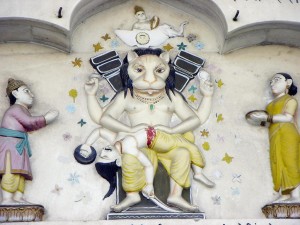
He asked Prahlada to ask for any benediction he liked:
 Q&As – #5
Q&As – #5 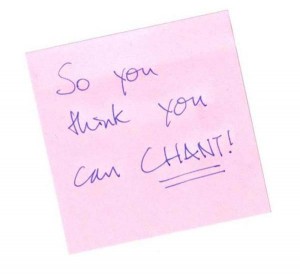
Here’s the fifth question from the devotees in the CIS, which is in two parts:
Question 5-1.
Hare Krishna, dear Hari Sauri prabhu! Please, accept my humble obeisances!
Please, tell me what can be done if I want to take a daily service to Sri Krishna, to go to lectures, attend programs and participate in sankirtana, but reading the morning japa is not going well. If this oblation make my body feel bad, and I’ m not rather of myself, because “bad” thoughts all time go to my mind, and the feeling of happiness at the end of the 4th circle is not always achieved, and if achieved, then quickly disappears, and sometimes I cannot even read the 3 laps? Although I can easily read 4-8 rounds in daily or evening time mentally.
Answer:
The basis for all our other service is the chanting of the Holy names.
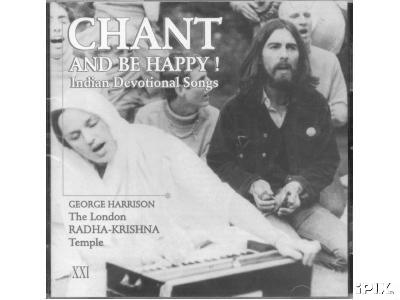
Srila Prabhupada prescribed the chanting of a minimum 16 rounds per day if we want to make steady advancement. We can judge whether we are making progress by our desire and ability to chant at least 16 rounds daily. In Chaitanya Caritamrta Srila Prabhupada says that if we cannot chant 16 rounds daily we are in a diseased condition of spiritual life.
There is a cartoon Srila Prabhupada once saw in an American newspaper. An old man and an old woman were sitting on a park bench watching a group of devotees chanting. The old woman turned to the old man and said, “Chant, chant, chant!” The old man replied, “Can’t, can’t, can’t!” Srila Prabhupada cited this in a class and to the laughter of the devotees he said that unless one is on the liberated platform, he cannot chant the Holy Names. So conversely, if we are chanting regularly, then we should know we are on the transcendental platform.
So I would recommend that before any other service, your chanting should come first. And then whatever you can do after that is fine.
If you feel that your chanting is artificial and you often don’t have any feeling for it, it doesn’t matter. In the beginning we may not have a higher taste and it may be difficult to chant. But by practice you can gradually develop a good taste for it.
The example is given of a man who has jaundice. When you have jaundice you lose your taste for sugar; in fact it becomes very bitter–actually the sugar is not bitter but the diseased man’s taste is distorted so that it seems bitter. Nevertheless, eating rock sugar is the cure for jaundice. As the disease diminishes, the taste of the suger comes back. When the man is healthy, the sugar again tastes very sweet. Similarly, we are in a diseased condition of material existence and we do not like to glorify and take shelter in the Holy Name, which is Krsna Himself. Still we should chant because chanting is both the means (cure) and the goal.
Even if it feels artificial, it will still act because the Holy Name is real, it is not an illusion. It is our bitter perception and our disturbed mind that is not real and that has to be changed. By constant chanting the change will come naturally.
Question 5-2:
And also, please, give me advice about mosquito problem. There are bugs around my place and every summer evening, in spite of any efforts, the mosquitos penetrate into the apartment. It is impossible to suffer them but having knowledge to use different fumigator is unpleasant.
Answer:
Srila Prabhupada advised us not to kill any living being if we can avoid it. However, if we are attacked,

we can defend ourselves.

When I was with Srila Prabhupada we used a number of methods to stop them attacking His Divine Grace while he was translating in the night:
[From Transcendental Diary Vol 1]
January 18 1976 – Mayapur
In the early evening, just on dusk, a few of the senior devotees and myself were sitting with Prabhupada in his room, conversing. From a distance and gradually drawing nearer, we heard the loud trumpeting of a conch shell accompanied by bell ringing and the chanting of mantras. Bhavananda Maharaja laughed and told Prabhupada it was Anantarama Sastri, an Indian devotee in his mid-twenties who joined us last year with three other sastris. Unfortunately the others left, but he has stayed on. As his name implies, he is very knowledgeable in the scriptures and well-versed in the performance of various types of puja. He can also quote practically any Sanskrit verse from memory.
Bhavananda explained that each evening as the sun goes down, he tours the building, floor by floor, with a bell, conch, and a large, clay incense burner, chanting various mantras to keep away ghosts and other subtle beings.
The sound grew louder and Prabhupada smiled in welcome as Sastri entered his room in a cloud of frankincense, the reverberations of the conch temporarily drowning out our conversation. It was an impressive ritual, made more so by Sastri’s ability to both blow air through his mouth and suck it in through his nose at the same time, thus keeping the conch blowing uninterruptedly for several minutes. He walked around both rooms, waving a bamboo fan over his clay bowl to disperse the fragrant smoke. It also acts as an effective mosquito repellent. After a couple of minutes he respectfully backed out the door and continued his nightly round.
 Q&As #9 The Holy Name is everything
Q&As #9 The Holy Name is everything April 11 2009
Here’s question #9 from Laxmana Prana das:
“In the purport to SB 4.24.40 Srila Prabhupada writes: “The real quintessence of sabda-brahma is the sound of Hare Krishna mantra. To the one who chants these transcendental sounds all material and spiritual truths are revealed.” And further: “In his prayers Lord Shiva begs the Supreme Personality of Godhead to show us His mercy so that just by chanting Hare Krisna mantra we could understand everything existing both in material and spiritual worlds…”
My question is: “How can we understand everything in this world simply by chanting Hare Krishna mantra?”
Answer:
The Hare Krishna maha-mantra is directly Krsna Himself.
When we realize that the name and the Lord are the same, we come to the self-realized platform.
Because Krsna is everything, both material and spiritual, when a devotee realizes that Krsna is everywhere, then everything becomes known to him.
It is revealed to him by Krsna, due to his intimate connection. Otherwise it is not possible to know what this material world is, what to speak of the spiritual world.
We can only gain whatever knowledge Krsna chooses to reveal to us. No matter how intelligent we think we are, we are covered by the three modes of material nature. Only when Krsna is pleased with us are we relieved of the cloud of ignorance that currently shrouds our consciousness. We can know what He wants us to know, and we cannot know what we want to know if Krsna does not consent. If there is no sun, our power of seeing is useless.
Thus even very intelligent persons are constantly bewildered if they are not devotees of the lord. And someone, even if they may not appear to be very intelligent, can know everything if Krsna reveals it to him. It is therefore not a question of brain power.
 KSC (not KFC!)
KSC (not KFC!) October 13 2008
The last two days have been spent in the very pleasant company of their holinesses Lokanatha, Bhakti Vikash and Janananda Swamis, discussing the work of the Kirtan Standards Committee (KSC).
Two other members couldn’t be here, Jagajivan and Aniruddha prabhus. It was formed in 2006 and set the task of trying to define the standards for kirtana and all things connected with that, in ISKCON.
The last two days we saw a bit of progress. We are aiming to make a presentation to the GBC meetings in February 2009. We have divided Srila Prabhupada’s instructions on kirtana into three broad categories- rules, strongly recommended, and general. Then we looked first at kirtana in the temple, with mainly ISKCON devotees. And then from the angle of tunes, instruments, dancing etc.
There are lots of other aspects to be looked at but to make a start these are the topics under current discussion. Sorry, can’t tell you what we came up with yet. You’ll have to wait till February. If it gets passed, it will be released for public consumption.
 Srila Bhaktivinoda Thakura’s Appearance day & World Hari-nama week
Srila Bhaktivinoda Thakura’s Appearance day & World Hari-nama week September 13, 2008
Saturday is my usual day for giving the Bhagavatam class here in Mayapur. So it was my fortunate lot to get to speak about Srila Bhaktivinoda Thakura. It is also the first day of our ISKCON World Hari-nama week and the devotees here have planned a whole week of activities centered around the chanting of the holy names in the local area.
The two events are natural companions. The Krsna consciousness movement as we know really stems from the efforts of Srila Bhaktivinoda Thakura. His highly organized Nama-hatta groups had over 500 branches and he traveled extensively to chant and speak about the glories of the Nama. He also wrote an amazing amount of stuff about the Nama and Krsna consciousness-over 100 books. He provided the proto-type for the Gaudiya Matha, and later, ISKCON.
For my class I consulted with ‘The Seventh Goswami’ by my godbrother Rupa Vilasa prabhu.
A wonderful book describing the life of Srila Bhaktivinoda.
After giving a brief overview of the birth and early days of the Thakura’s life. I picked out two chapters which I read to the devotees: “Preaching the Holy Name” and “A Mighty Pen” because both of these focus on the description of the glories of the holy name and the Thakura’s attempts to spread it.
These describe his activities from 1889-1893, a period immediately following his discovery of the true birth place of Sri Caitanya Mahaprabhu in 1888. It was one of intensive spiritual endeavor when he would travel from village to village and chant and speak to crowds of thousands. He went to Vrindavana and he also wrote ten books, including the Jaiva Dharma. I won’t repeat it all here but here’s Bhaktivinoda’s own description of his preaching programs [from Seventh Goswami]:
